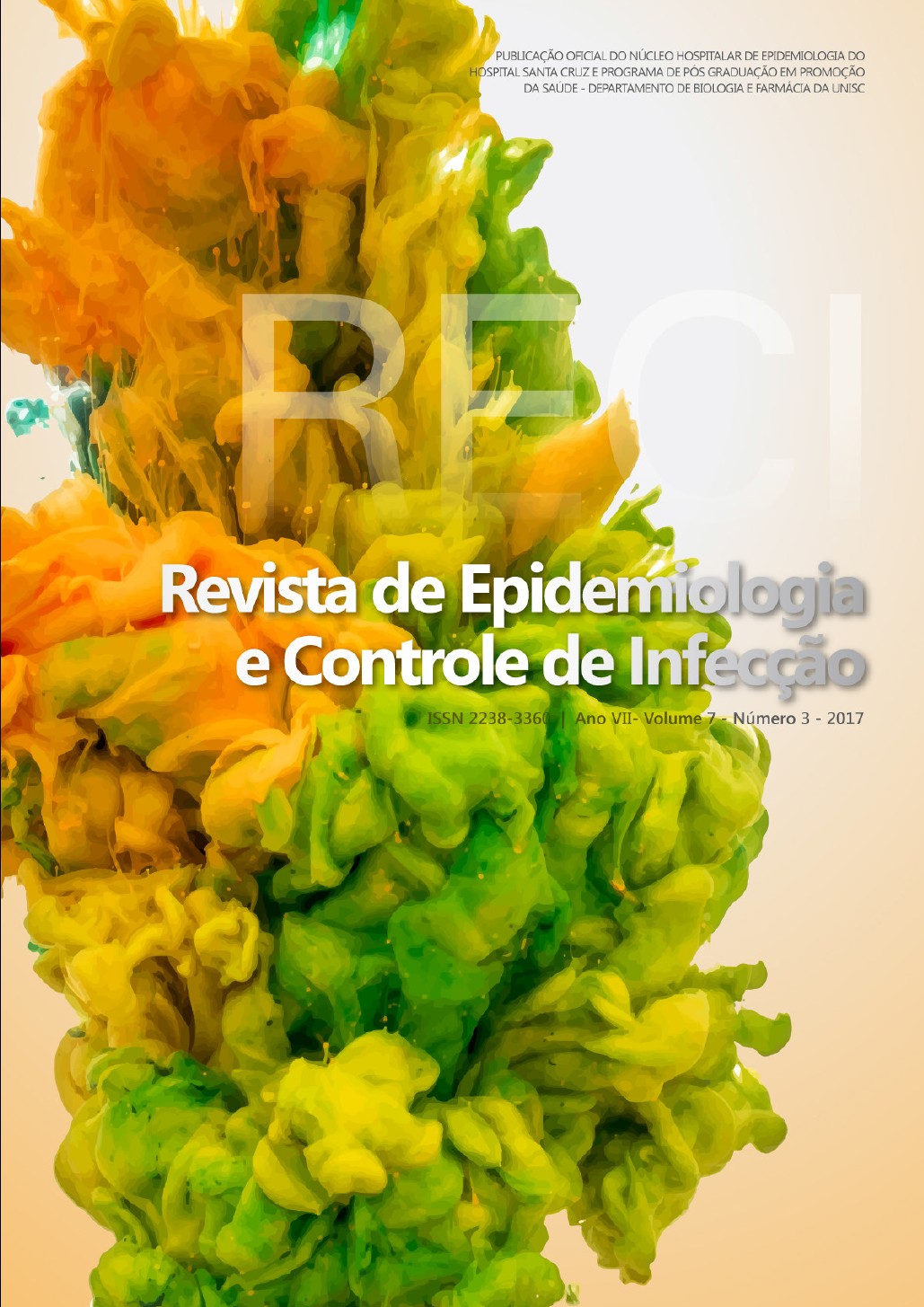Infecção do trato urinário associado ao cateter: Indicadores de Processo para análise das práticas de prevenção em pacientes críticos
DOI:
https://doi.org/10.17058/reci.v7i3.9043Resumo
Justificativa e Objetivos: as infecções do trato urinário (ITU) impactam de forma significativa na evolução clínica do paciente. Desse modo, objetivou-se analisar, por meio de Indicadores de Processo, as conformidades e não conformidades relacionadas às práticas de controle e prevenção de ITU relacionada ao cateterismo vesical de demora em setores com pacientes críticos. Métodos: pesquisa documental, observacional e transversal de abordagem quantitativa, realizada em um Centro de Terapia Intensiva (CTI) e uma unidade de Emergência de um hospital público de Curitiba. A coleta e análise dos dados foram baseadas em Indicadores de Processo elaborados e validados por Fernandez, Lacerda e Hallage (2006). Os Indicadores foram avaliados em conformidade quando seus valores estão entre 73 – 87 % (Indicador 1) e 75 – 85 % (Indicador 2). Resultados: para os Indicadores 1 e 2 o percentual geral de conformidade nos dois setores analisados foram de 68,8% e de 29,5%, respectivamente. Quando avaliados os itens que subsidiam os numeradores de ambos os Indicadores, o registro da indicação para o uso do dispositivo (Indicador 1) foi mais satisfatório no setor a Emergência (80,6%) e a fixação adequada (Indicador 2) apresentou não conformidade nos dois setores avaliados (67,5 % no CTI e 96,8 % na Emergência). Conclusão: os Indicadores revelaram não conformidades frente às práticas de prevenção de ITU relacionada ao cateterismo vesical de demora e direcionam a necessidade da implementação de estratégias de orientação das equipes assistenciais e vigilância continua no uso do cateter.Downloads
Downloads
Publicado
Como Citar
Edição
Seção
Licença
The author must state that the paper is original (has not been published previously), not infringing any copyright or other ownership right involving third parties. Once the paper is submitted, the Journal reserves the right to make normative changes, such as spelling and grammar, in order to maintain the language standard, but respecting the author’s style. The published papers become ownership of RECI, considering that all the opinions expressed by the authors are their responsibility. Because we are an open access journal, we allow free use of articles in educational and scientific applications provided the source is cited under the Creative Commons CC-BY license.


